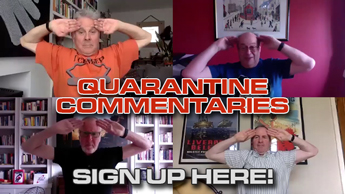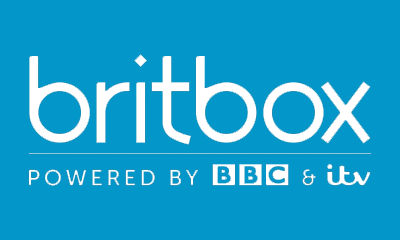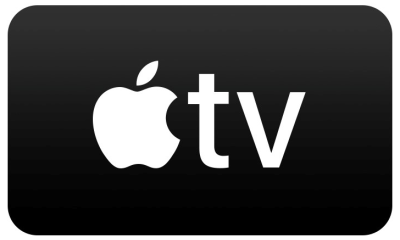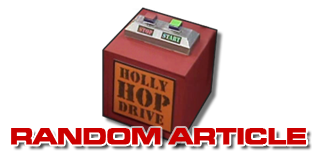 |
Talented Todhunter As Todhunter in Red Dwarf's first episode, he had to learn one of the most complex pieces of techno-babble ever uttered. As Mark in Joking Apart he dug himself into some sticky situations. And as David in Cold Feet he had no time for jokes. Mr Flibble talks comedy with the magnificent Robert Bathurst. |

Andrew Ellard
Mr Flibble asked Andrew to forward his first question to Robert: How did you get into ACTING?
I had no background in it, and no confidence that I would any get into any sort of drama school. I had no real knowledge about the profession - all I knew was that I wanted to do... pretty much what I'm doing now.
I was at Cambridge studying law, auditioned for the Footlights and got in that way. I did a lot of revues, but I didn't particularly want to do comedy sketch shows forever. When I left university I managed to get auditions for West End shows. My first proper acting job was in Noises Off at the Savoy theatre.
I've done loads of episodes of stuff. [For] my theatre biog now, rather than write down all the things that I've done before, I do a sort of 'catch all'. I did a show with Felicity Kendal, and in my biog I'd written 'TV also includes The Odd Thing and Loads of Tosh' - two TV shows that didn't actually exist! (Laughs) The Cold Feet publicity came out a year later with cast photographs, and under my photograph it said, 'Star of TV's The Odd Thing and Loads of Tosh'!
Mr Flibble was appalled at this lack of respect for the theatrical biography and began to list his many, many credits. Eleven seconds later, Andrew asked: How did you get involved with RED DWARF?
I seem to remember [that] I auditioned originally for the Craig Charles part, which is wholly inappropriate! They hadn't got Craig or Chris at that stage. I was one of the people they saw for the Lister part. That didn't happen, so they gave me the nod for a character who got killed off - turned into a pile of sherbet.
It was interesting, because what was great about the show is [that] it was run by the people who'd written it. [It] wasn't run by the network, it wasn't run by marketing people, it was just run by Rob and Doug. They had Tony Hawks as the warm-up man. Those who didn't get through got the scraps! I keep getting killed off in first episodes. I got killed off in the first episode of Hornblower. I had a good on-screen death - lots of blood out of the mouth. But to be turned into a pile of sherbet is pretty ignominious.
I was asked back, actually. I was doing Cold Feet and couldn't make it. I was really disappointed. They asked Todhunter to come back. Mac McDonald, David Gillespie - we all found ourselves back in it somehow - which would have been great fun, I would have loved to do that.
Todhunter had this horrid speech - did you have any trouble with that?
Yeah, loads. One of the interesting things about the way Rob and Doug worked is that they feed you rewrites three minutes before you go on. They hone it, they're not just satisfied with the first, second or third draft, they want to keep working at it.
I'd never heard of the words 'modem' or 'stasis', I didn't know what the hell was going on, what the thing was meant to be - to at least look as though you know what you're talking about! It was a real old mouthful, and I fouled it up a few times.
How was Todhunter's character originally explained to you?
Any first episode of a sit-com... Sit-com relies on running gags, and effectively 'nothing' happening by the end of the episode - you're always back to square one. Essentially, episodes can be seen in isolation because you're familiar with the characters and how they think. [With] the first episode of anything you're introducing the characters, and so, effectively, Todhunter was just a cipher, that's all he was there for. He served his purpose and was... powdered.
You starred in the award-winning JOKING APART, written by Steven 'Coupling' Moffat. How was that experience?
Joking Apart was the most enjoyable job I will ever do. I could retire knowing I've done the most enjoyable job I will ever do. The press wrote about it, and I certainly felt, that it was good farce - farce is always seen in the pejorative, it's always used as a term of criticism. But it was good farce. Of the twelve episodes we made, I think five or six are timeless, beautifully-constructed farces which will endure.
In terms of writing, Steven Moffat had written beautifully crafted, three-act comedies with a set-up, development, and real real painful, manic conclusions. Which was so good to play - I can't tell you. Doing it in front of an audience it had a sort of theatrical quality to it, which meant that there was that combination of terror and exhilaration which is unmatched.
It's a show which I adore. The curse of Seinfeld hit us. The narrative device of this sort of undefined stand-up - was it in his head? Was it real? - was simply a shorthand way of getting into scenes. Doing it in stand-up was one way, and it was 'of the time' in the early 90's, but Seinfeld came out after we'd done the first series, certainly after we'd done the pilot. But it wasn't comparable to Seinfeld because it wasn't about stand-up!
What I'd like to do now is to re-shoot the links [as] video diary links - now that I'm older and a different shape - and just have me doing it as me, now, talking about the mistakes of my callow youth. We've got these beautiful, beautiful situations that Steven's done. I think it could still have a life without making any more. It would be richer for being a retrospective. It's very much [of the] early 90's - all the telephones are the size of bricks! (Laughs)
The two series were made years apart, was there any ever chance of a third?
Steven Moffat did congratulate me slightly for losing the third series. He said at least we went out in a blaze of glory. It was the BBC Christmas party, 1993. We'd made the second series and we hadn't any idea when it was going out. Some bigwig from the sixth floor of the BBC shook my hand and said, "Right, Joking Apart series two. We're going to send out series one followed by series two, all twelve together. Then we'll make series three in the summer." Then he drew a little graph with his hand - media people like graphs - and said, "We want viewing figures to go like Everest," and his hand shot up. All I said was, "But, Everest goes down the other side..."
Over the next year, the series didn't happen. We never got a third series. Because it was a series about a bloke who does one-liners, Steven Moffat said, "At least we went out on a one-liner."
COLD FEET had a very self-contained pilot show...
Absolutely - people thought that was it! It was designed as a one-off - it was never really sold to us as a potential series. Although when I was filming the pilot I bumped into the writer for the first time, Mike Bullen, and for want of anything else to say, he said, "I've been asked to write some storylines for a possible series. You might lose your job." I said, "Well, obviously, if you don't want me in the series..." He said, "No, no, no, your character might lose his job." I thought he was getting heavy in the first two minutes of having met me.
I was a minor character in the pilot - it was Jimmy [Nesbitt] and Helen's [Baxendale] story. What is glorious about the show is that at the end of the pilot, and of each season, people say, 'That must be it then, there's nowhere else to go.' It's testimony to Mike's creativity that he's kept it fresh and interesting and made the characters richer. The pleasure of doing the fourth series is immense at the moment.
Mr Flibble asked if Robert could put in a word with the casting director. Robert very kindly refused. Andrew very nastily poked the penguin in the eye. We recently interviewed Yasmin Bannerman, who played your lover in Cold Feet - which she said you made very comfortable to do.
She's utterly gorgeous. I don't think she'd done any love scenes before - or so she says. They always say they're virgins... (Laughs) When you are embarking on such things, and you've got some hairy-arsed electrician five feet away from you as well, it is strange, rather odd - we got on very well, she was great.
How far into filming the fourth series are you?
We're two weeks into a five month stint. We're meant to be going to Australia for one episode at the end. There's no sense of the expectation that's riding on us, there's no added pressure like that. The only time that pressure really starts is two weeks before broadcast when all the journalists keep telling you that there's a lot of expectation...
Mr Flibble enjoyed talking to Robert Bathurst, and now that it's over... Mr Flibble is very cross.














